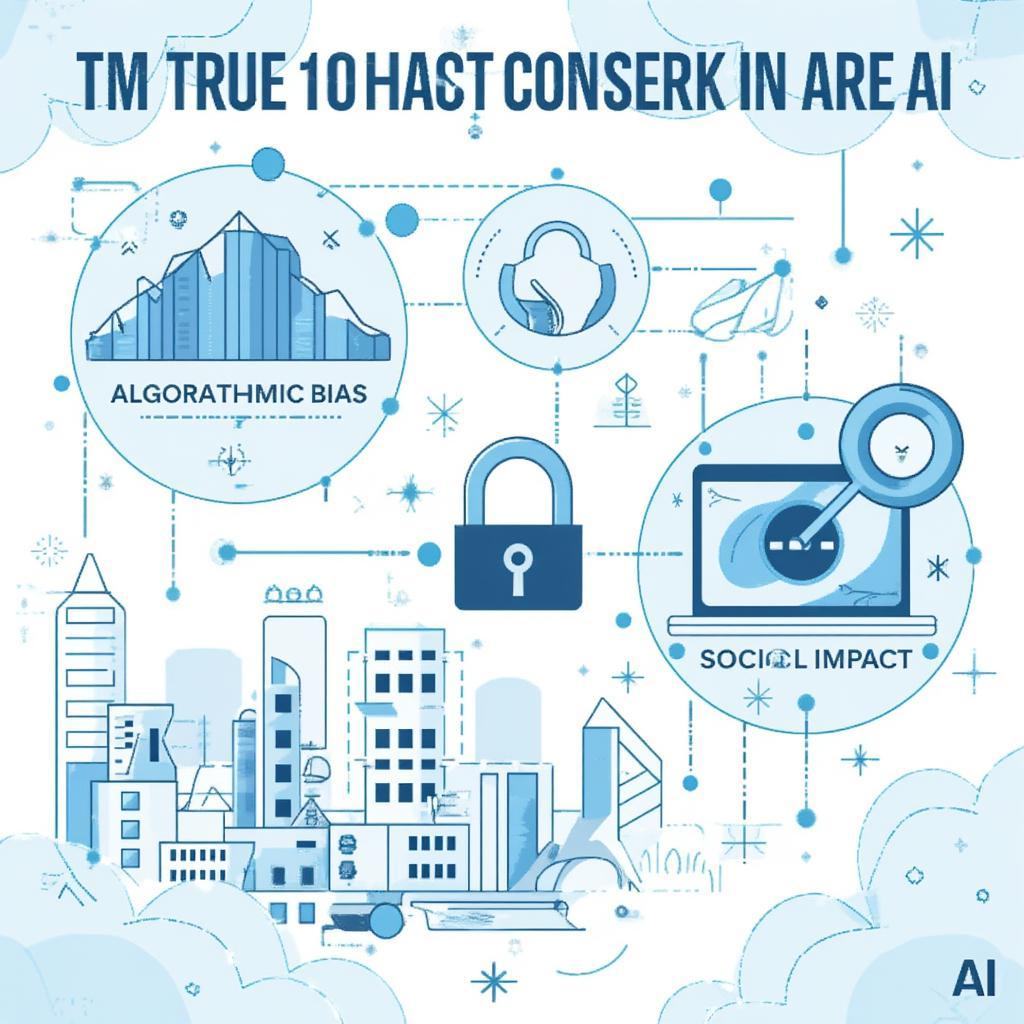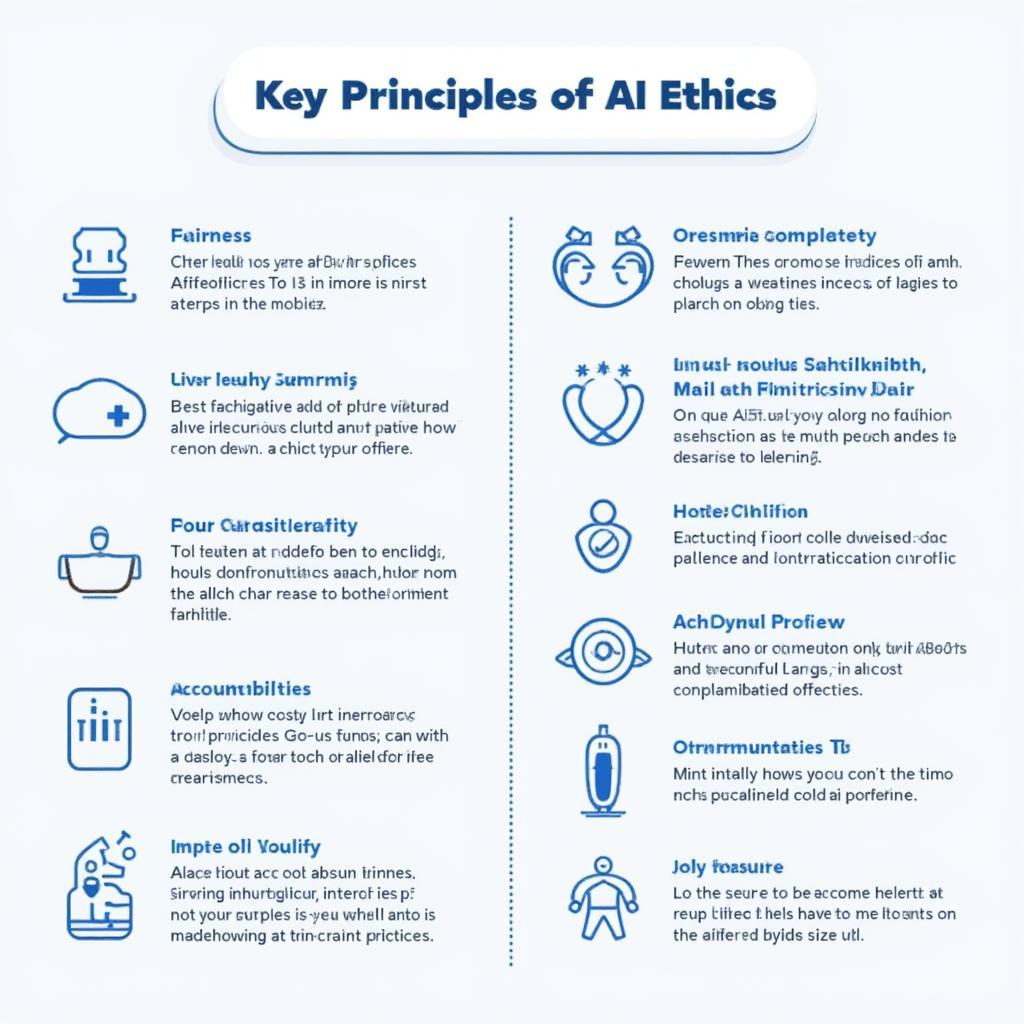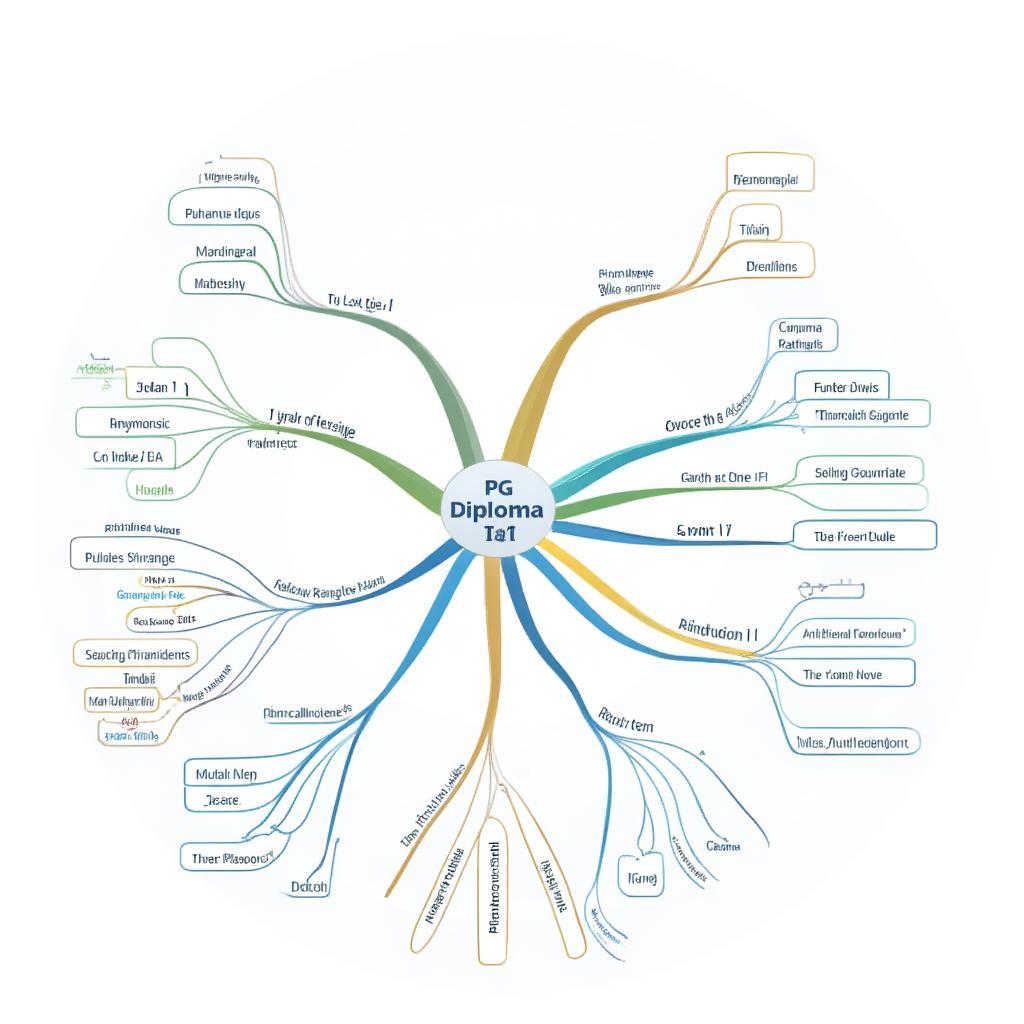AI Used in Healthcare: Ethical Considerations and Future Implications

Artificial intelligence (AI) is rapidly transforming various sectors, and healthcare is no exception. The integration of AI promises to revolutionize diagnostics, treatment, and patient care, offering unprecedented opportunities to improve health outcomes. However, with these advancements come significant ethical considerations that demand careful attention. This article delves into the complex landscape of Ai Used In Healthcare, exploring both its potential benefits and the ethical challenges it presents.
The application of AI in healthcare spans a wide range of areas, from assisting in the early detection of diseases to personalizing treatment plans. Machine learning algorithms can analyze vast amounts of medical data, identifying patterns and anomalies that might be missed by human eyes. This capability holds immense promise in improving diagnostic accuracy and speeding up the time to treatment. The ability of AI to process medical images such as X-rays, CT scans, and MRIs to detect subtle indicators of diseases is already transforming how doctors do their work. This isn’t just about speed; it’s about increasing the likelihood of accurate diagnosis, which can be a life-saver.
How Is AI Currently Being Used in Healthcare?
AI is no longer a futuristic concept in healthcare; it’s actively being deployed in various capacities. From robotic surgery to predictive analytics, AI is reshaping how medical professionals operate. Here’s a look at some of the key applications:
- Diagnostic Imaging: AI algorithms are trained to identify diseases from medical images with increasing accuracy. This assists radiologists in detecting anomalies early, leading to quicker interventions.
- Drug Discovery: AI algorithms can analyze molecular structures and biological pathways to accelerate the drug discovery and development process. This approach can significantly shorten the time it takes to bring new drugs to market.
- Personalized Medicine: By analyzing patients’ genetic information and health data, AI can help create customized treatment plans that are tailored to individual needs. This level of personalization has the potential to improve treatment outcomes and minimize side effects.
- Robotic Surgery: AI-powered surgical robots provide surgeons with enhanced precision, dexterity, and control during complex procedures. This can lead to less invasive surgeries and faster patient recovery times.
- Remote Patient Monitoring: Wearable sensors and AI algorithms enable continuous monitoring of patients’ health parameters, allowing healthcare professionals to intervene proactively. This can improve patient outcomes and reduce the need for hospital readmissions.
- Administrative Tasks: AI-powered chatbots and automation can streamline administrative tasks such as appointment scheduling and billing, freeing up healthcare professionals to focus on patient care.
“The transformative power of AI in healthcare isn’t just about new tools; it’s about fundamentally reshaping our approach to care. However, we must proceed with caution and a deep commitment to ethical principles to ensure AI serves the best interests of all patients,” notes Dr. Anya Sharma, a leading bioethicist.
The Ethical Challenges of AI in Healthcare
While the potential benefits of AI in healthcare are undeniable, there are also significant ethical challenges that must be addressed. Ignoring these issues could lead to unforeseen consequences and harm to patients. Some of the key ethical concerns include:
Bias and Discrimination
AI algorithms are trained on data, and if that data reflects existing biases in society, the algorithms can perpetuate and even amplify those biases. This could lead to unequal treatment for different demographic groups. For instance, if a medical algorithm is trained primarily on data from one ethnic group, it may be less accurate in diagnosing patients from other groups. Understanding and actively mitigating the effect of biases in data training is absolutely essential for the ethical adoption of AI in healthcare. advanced artificial intelligence plays a vital role in addressing these challenges, by using more complex algorithms that recognize and reduce bias.
Data Privacy and Security
The use of AI in healthcare requires access to vast amounts of sensitive patient data. Protecting the privacy and security of this data is paramount. Data breaches can have serious consequences, leading to identity theft, discrimination, and a loss of trust in the healthcare system. Healthcare providers must ensure that all patient data is handled with the utmost care and that robust security measures are in place to prevent unauthorized access.
Lack of Transparency and Explainability
Many AI algorithms, particularly deep learning models, are often considered “black boxes.” It can be difficult to understand how these algorithms arrive at their conclusions, making it challenging to hold them accountable for their decisions. This lack of transparency is a major ethical concern in healthcare, where life-altering decisions are based on these complex systems. To ensure ethical use, there’s a growing need for AI systems that are more transparent and explainable.
Over-reliance and Deskilling
Over-reliance on AI could lead to a decline in the skills of healthcare professionals. If doctors become overly dependent on AI for diagnosis and treatment decisions, they might lose the ability to make critical judgments based on their own clinical expertise. Additionally, it’s important to ensure that AI tools are used to support, not replace, human interaction and empathy in healthcare.
Responsibility and Accountability
When an AI algorithm makes a mistake, who is responsible? Is it the developer of the algorithm, the healthcare provider who used it, or the institution where it was implemented? Determining the lines of responsibility and accountability is crucial for ensuring that AI systems are used ethically. The legal and regulatory frameworks need to adapt to this quickly.
The Future of AI in Healthcare: A Responsible Path Forward
Despite the ethical challenges, AI holds tremendous potential to improve healthcare globally. To realize these benefits and avoid potential harm, it’s essential to approach the development and deployment of AI in a responsible and ethical manner. Here are some of the key steps that should be taken:
- Developing Ethical Frameworks and Guidelines: Policymakers, healthcare professionals, and AI developers must work together to create comprehensive ethical frameworks and guidelines for the development and use of AI in healthcare. These guidelines should prioritize fairness, transparency, privacy, and accountability.
- Ensuring Data Diversity and Quality: The training data used for AI algorithms must be diverse and representative of the population they are intended to serve. This will help prevent biases and ensure that AI systems work effectively for everyone. Additionally, data needs to be of high quality to minimize errors. You can find more on this in the data science and artificial intelligence online courses.
- Promoting Transparency and Explainability: AI developers should strive to create algorithms that are more transparent and explainable, allowing healthcare professionals to understand how decisions are made. This may involve using techniques such as explainable AI (XAI).
- Enhancing Security Measures: Robust security measures are essential to protect patient data from unauthorized access and data breaches. This includes encrypting data, limiting access, and employing security protocols.
- Providing Training and Education: Healthcare professionals need proper training and education on how to use AI tools effectively and ethically. This training should emphasize the importance of critical thinking and professional judgment.
“We must always keep patients at the heart of all our efforts. AI in healthcare is a powerful tool, but it must serve humanity, not the other way around. This is a shared duty for all stakeholders,” adds Dr. Ben Carter, a medical AI expert.
How can AI Help in Emergency Medicine?
AI has the potential to revolutionize emergency medicine by assisting doctors and nurses in making quick and accurate decisions. AI-powered diagnostic tools can aid in the rapid identification of critical conditions, such as stroke or heart attacks, enabling prompt interventions. Furthermore, AI can help manage patient flow and resource allocation, improving overall efficiency in emergency departments. The use of AI in analyzing patient data in real-time is a game changer in the chaotic world of emergency care.
How Does AI Affect Medical Research?
AI is drastically accelerating the pace of medical research. Machine learning algorithms can analyze large datasets of clinical trials, genomic data, and scientific literature to identify new drug targets and treatments. This can significantly reduce the time it takes to discover and develop new therapies for diseases. Additionally, AI tools can assist in the design of more efficient clinical trials, improving the chances of research success. The ability to analyze vast quantities of data with speed and efficiency is creating opportunities like never before for medical breakthroughs.
What Are the Benefits of AI in Mental Healthcare?
AI is also making inroads into mental healthcare, offering new approaches for diagnosis and treatment. AI-powered chatbots can provide support for individuals struggling with mental health issues, offering a form of continuous care. AI algorithms can also be used to analyze data from mental health assessments and wearable devices to identify patterns and trends. This can lead to more personalized and effective interventions for conditions like depression, anxiety, and PTSD. The potential of AI to reach underserved populations and make mental health care more accessible is significant. If you are interested in this, then consider the free artificial intelligence course online to gain a solid foundation.

Balancing Innovation with Responsibility
The advent of AI in healthcare presents a unique opportunity to revolutionize the industry. But it also brings significant ethical questions that require proactive solutions. By prioritizing patient well-being, fostering transparency, and ensuring responsible development practices, we can harness the transformative power of AI while upholding the highest standards of ethics and patient care. The future of AI in healthcare depends on our ability to integrate technological advancements with human-centered values and ethical principles. The journey requires a collaborative approach that engages experts in technology, medicine, ethics, and public policy. To learn more about this, look into pg diploma in artificial intelligence for more in depth education.
The ongoing integration of AI in healthcare offers incredible potential, but also a great deal of responsibility. By moving forward with careful consideration, we can ensure AI enhances healthcare for all of humanity.
The transformative potential of AI in healthcare is profound. With a focus on ethical considerations and responsible implementation, we can unlock the benefits of AI for generations to come, ultimately improving health outcomes and creating a healthier world. It’s a challenge that demands constant attention, education, and conversation, and a great opportunity to learn about ai gpt 3 for more real world use of advanced AI.




